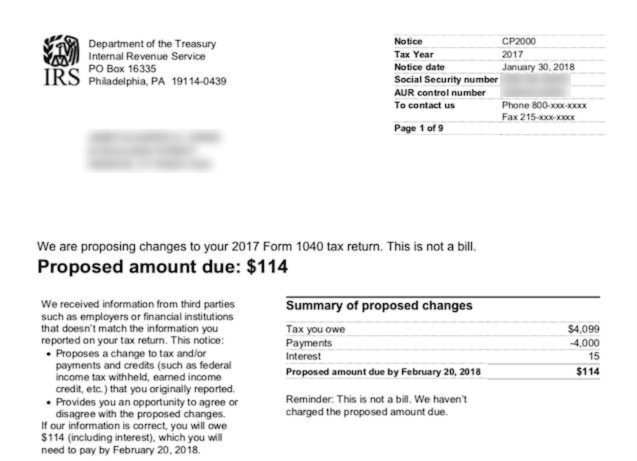 The most recent IRS letter being sent out to cryptocurrency users, the CP2000 notice, is much more specific and informs the recipient of their proposed tax due.
The most recent IRS letter being sent out to cryptocurrency users, the CP2000 notice, is much more specific and informs the recipient of their proposed tax due.
This is a notice that is sent out by the IRS when there are perceived discrepancies between what the taxpayer filed/paid and information acquired from relevant 3rd parties. In the case of cryptocurrency users, the information is provided from a 1099-K, and the relevant 3rd party is likely Coinbase.
1099-K forms paint an often inflated, one-dimensional picture for the IRS. The form includes the total gross proceeds for every transaction on the exchange. This means that if you sold 1 BTC for $10,000, the IRS would see a gross proceed of $10,000 - even if you paid $12,000 for the 1 BTC originally, resulting in a $2,000 capital loss.
The IRS notice CP2000 is not a new notice specifically created for cryptocurrency users, so there is existing information about the options to respond that are available to the recipient. The main source of this information is the IRS itself.
However, taxpayers should be aware that while the CP2000 notice is not itself a bill, they must take action.
It's vital to calculate your cryptocurrency capital gains properly in order to provide the proper documentation (Form 8949) that illustrates your taxable gains.
Bitcoin.Tax has been helping users work out their crypto tax liability since 2013 and provide a quick, easy and low-cost service that users find intuitive and helpful.
Sign up at https://bitcoin.tax/signup for free up to 20 transactions or upgrade to one of our paid plans, starting at just $29.95.